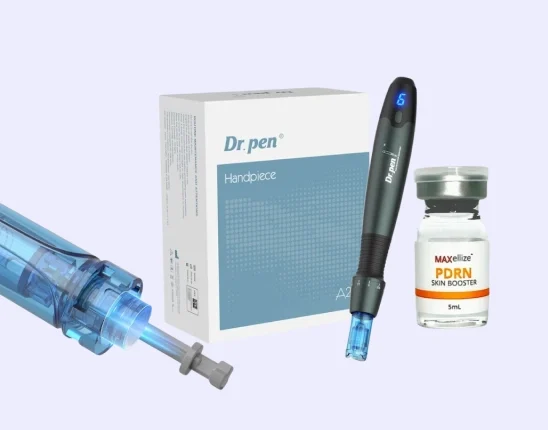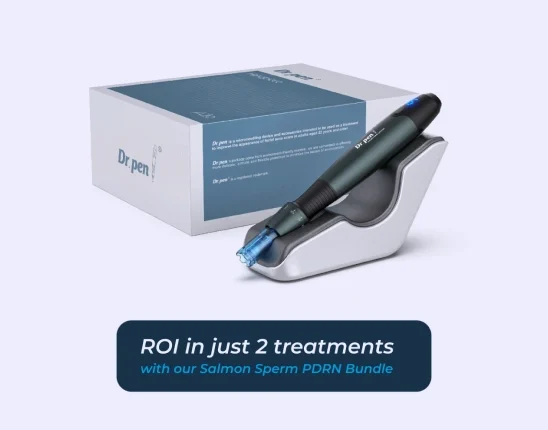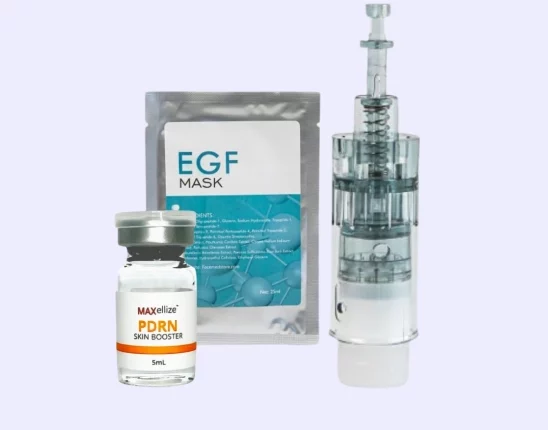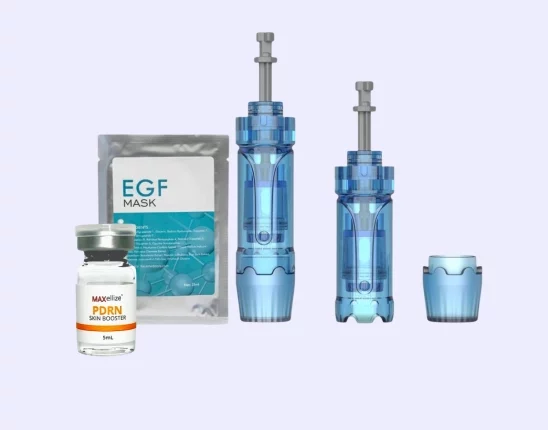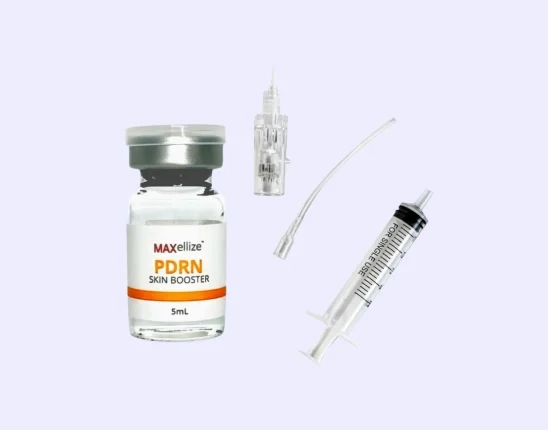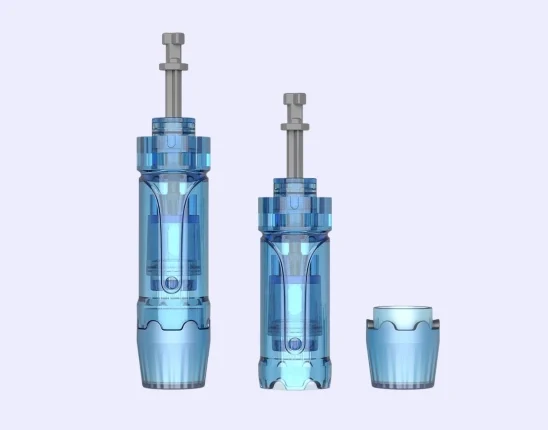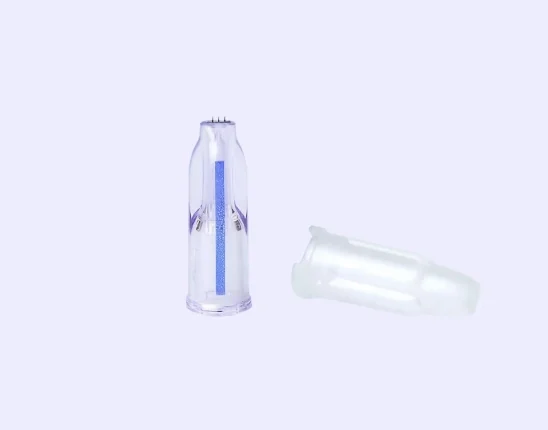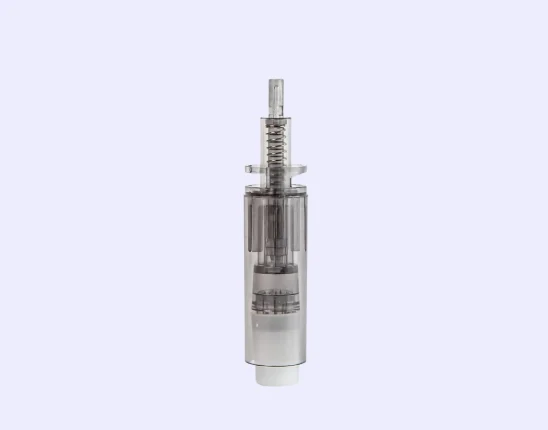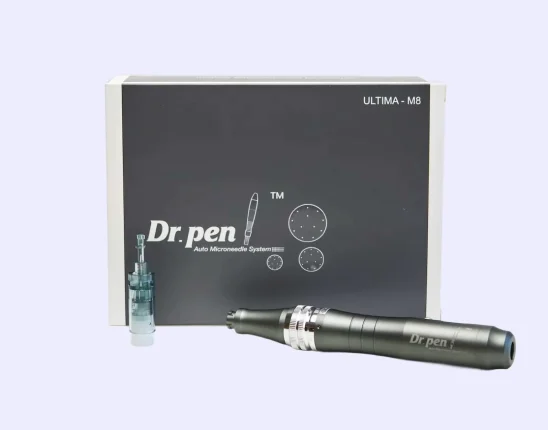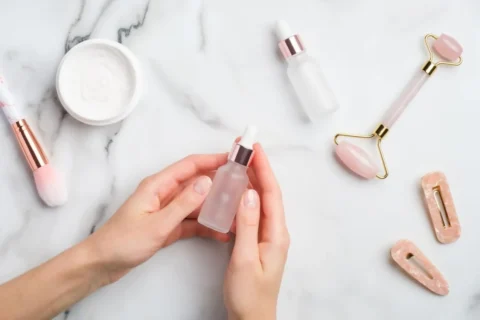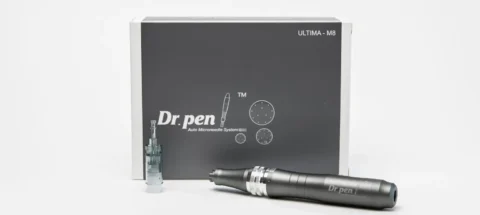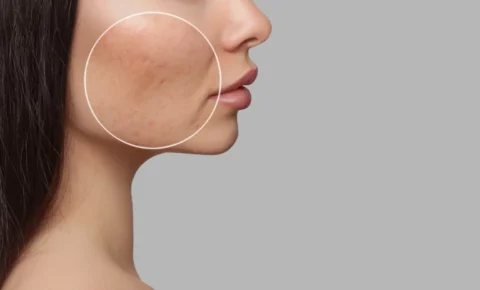Microneedling treatment has been at the forefront of skincare products in the past years, especially with the introduction of at-home microneedling pens. It’s not difficult to see why: the benefits of microneedling extend far beyond getting rid of dead skin cells and brightening up dull skin. With consistent and proper use, it’s an effective method of collagen induction therapy that can work on anyone regardless of their skin tone or skin type.
So how often should a microneedling pen be used, and why should treatment sessions be spaced apart? While the exact number will vary depending on the patient and the length of the needle, microneedling pens should only be used every four to six weeks. Any more will impede the body’s natural healing process, which makes them more likely to develop an active skin infection or skin injuries with prolonged use.

Get Everything You Need for Your Microneedling Pen and More at 20% off Your First Order with Code “20OFF”!
The Microneedling Pen treatment requires only the best equipment to deliver treatments and results your patients will love. Get your best Microneedling Pen equipment and more at FACE Med Store today!
You can create an account here.
Why The Frequency Of Microneedling Differs From Person To Person
Microneedling pens work by physically boosting the collagen production of the skin by causing micro-injuries and abrasions that encourage skin cell turnover. Aside from acting as light exfoliation to remove dead skin, it’s an ideal device to use on facial scars for smoother skin.
While there’s a generally accepted “safe” minimum time to wait before using microneedling pens again, there are several reasons why the exact number can vary from patient to patient.
Age Of The Skin
The overall skin health of most people depends on their age since collagen production slows down as people get older. Healthy skin is easier to get and maintain when someone is younger since the aging process hasn’t affected the skin’s overall production of collagen. As people age and their bodies go through wear and tear, the layers of skin slow down with their skin cell turnover.
Other skin issues can also manifest over time, like an allergic reaction to skincare products and makeup to sun damage from direct sunlight exposure – all of these can affect the pace of how the skin can heal from microneedling. The older the patient, the more likely they’ll need more time from each regular treatment to allow the upper layers of their skin to recover from microneedling.
Needle Depth Used
Microneedling pens all function on the same principle: using the body’s wound healing response for increased collagen production and skin tightening treatment. However, not all of them are designed the same way. One of the most obvious differences is needle depth, or the length of the needles used to create the micro – tears in the skin. Generally, a deeper needle means a deeper layer of the skin gets penetrated, which can accelerate healing.
However, a plastic surgeon has to be careful with the exact depth of the needle that they’re using to avoid damaging skin underneath the upper layer. Medical professionals are usually the only ones cleared to use dermal needling at that depth. For at-home kits, the layer of skin reached isn’t that deep so the healing process doesn’t take as long.
Lifestyle And Environment
A person with an active lifestyle is far more likely to have difficulties with keeping fresh skin, especially if they’re in a region with a dry climate. Dry skin doesn’t have the hyaluronic acid necessary to be more resilient against wear and tear, which can make any microneedling treatments more difficult to conduct and recover from.
Environment not only means the actual climate or weather around the patient but their general living conditions as well. This doesn’t have to be physical: mental factors like stress have a pronounced role in skin health aside from affecting healing time. If the patient doesn’t live in an environment that can properly let them heal hours after treatment or days after treatment, they’ll take longer to recover.
In-Clinic vs At-Home Microneedling
A microneedling device comes in all shapes and sizes, though a good rule of thumb to follow is that those used in skincare clinics are more likely suitable for a deeper treatment. This makes in-clinic appointments (especially the ones focusing on hair regrowth) a little more difficult to recover from since office treatments often reach deeper layers of the skin.
In contrast, at-home microneedling pens are usually used for minor hair growth, treating dark spots, or improving uneven skin texture. These needling applications don’t take a lot of work and are usually easier to recover from since the skin isn’t subjected to too much trauma.
Pre-Existing Conditions
People with sensitive skin or blood disorders like anemia can find it more difficult to recover or go through microneedling since their skin can’t take the strain. In some extreme cases, people with these conditions are forbidden from microneedling altogether, since the risk of infection or blood loss can be too high. This is true even for in-clinic applications: while a sterile environment is guaranteed, there are simply too many risks that doctors and plastic surgeons do not want to take.
However, there are also physical conditions that can drastically affect the recovery time required between microneedling treatments – foremost among them being obesity. Because the extra layer of skin can make surface treatments difficult, deeper needles often need to be used for microneedling treatments. This puts additional strain on the skin, and can drastically affect the recovery time and healing process.
Boost Your Patient’s Skin With A Peptide-rich Face Mask. Stock Up and Get 20% OFF Your First Order With CODE “20OFF”.
Enrich your patients’ skincare routine with a face mask that soothes and reduces wrinkles. Give your patients a skin boost with our carefully-formulated EGF Mask.
You can create an account here.
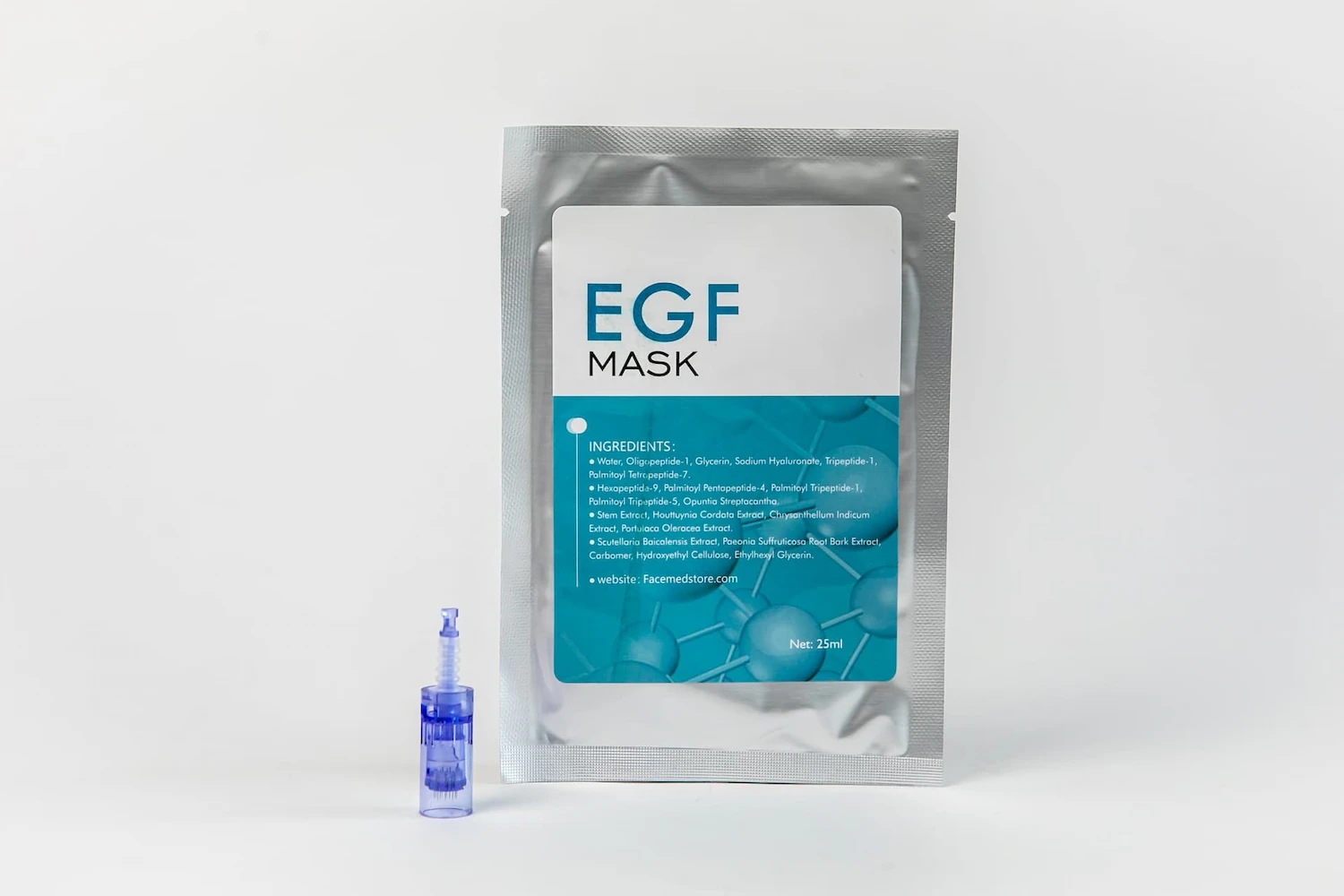
Skin Care Routines
Finally, one more factor that can affect the exact recovery needed between regular treatment is the skincare routine that the user follows. Someone who has a comprehensive skincare routine that takes care of their skin hydrates consistently, and applies the right skin care products can recover faster from a needling treatment.
However, it’s important to take into account that medications for specific skin conditions like active acne breakouts can also play a role in how efficiently the skin recovers from microneedling treatment. Since the physical action of opening up the skin can make serums and lotions easily accessible by the body, microneedling patients need to be extremely careful about any interactions that may occur.
Ultimately, the best timeframe to choose between the frequency of using a microneedling pen largely relies on self-monitoring or the advice of a medical professional. People who use microneedling pens at home should never do so without the advice of their dermatologist or cosmetic surgeon to avoid any untoward reactions.
Microneedling Pen Use vs Derma Roller Use
Dermal rollers offer an alternative to the somewhat intensive treatment that microneedling pens can sometimes stray into. By using a roller instead of needling, the reaction and pressure on the skin are gentler and unlikely to break even the upper layer. As a method of collagen induction therapy, plenty of people use rollers on areas like the cheeks or back of the hands to stimulate collagen production.
While this method works well, needling with a microneedling pen can still offer better results. Dermal rollers have their fair share of disadvantages compared to the action of a microneedling pen:
- Requiring a large, flat surface area to work
- Unable to reach crevices and nooks on the body
- May have substandard results since the micro-tears caused aren’t deep
- Cannot treat some skin conditions that microneedling pens can
- Cannot be used in areas with hair like the scalp
This difference is immediately noticeable, especially with deep scars. While microneedling pens work well for most types of scars, only the lightest ones can be improved via dermal rollers. This can be an issue when age starts to weaken the building blocks of the skin, making dermal rollers all but ineffective.
However, for adjusting pore sizes, dermal rollers can still work well. Most experts would not recommend combining dermal rolling and microneedling treatment, since the strain on the skin makes it more susceptible to infection.
Is It Possible To Overdo Microneedling?
Microneedling isn’t a particularly invasive treatment, even if a deeper needle is used. However, that doesn’t mean that a patient can’t receive too much microneedling. This usually happens with at-home needling treatments, though sometimes a mistake in the pressure used during in-clinic appointments can cause this to happen as well.
Overdoing microneedling isn’t a serious problem at the outset – what can quickly make it dangerous is if it isn’t addressed immediately. Since microneedling opens up the skin, it’s far easier for outside bacteria to infect the treated area. This is particularly prevalent with patients who microneedle at home, since a sterile environment isn’t always guaranteed.
Aside from the risk of infection, overdoing microneedling can lead to pronounced skin laxity, permanent scarring, and blemishes on the skin that can be difficult to remove without plastic surgery. Because regular treatments can wear down the skin over time, it can be easy to actually do more harm than good with microneedling if the user isn’t careful.
Again, the best way to avoid this from happening is to get microneedling treatments in-clinic over getting them at home, but it’s also possible for a careful patient to use at-home kits without this ever happening to them.
Why Using PEP Growth Factor Products Can Drastically Improve Microneedling Results
Microneedling pens are effective tools that can treat most skin conditions from enlarged pores to acne scarring: but one overlooked detail is how it’s also an excellent way to prepare the body for faster absorption of serums, creams, and lotions. While Vitamin C serum products and other beauty aids have been the products of choice, PEP Growth Factor products can be another alternative.
Made from a proprietary mixture of fibroblast growth factor, copper peptides, and other essential nutrients, PEP Growth Factor excels at improving the appearance of thinning hair and boosting scalp health. With regular use, a patient can experience visible improvement on their hairline within weeks.
One reason why PEP Growth Factor products can work so well with microneedling treatments is that the small micro-tears in the skin caused by the needles give any medication or product easier access to the bloodstream, which means it can start working on the body earlier. Microneedling treatments on the head and scalp are excellent opportunities for PEP Growth Factor Products to work.
Buy High Quality And Affordable Medical Tools And Supplies With FACE Medical Supply
-
 Dr. Pen A20 Replacement Needles
Dr. Pen A20 Replacement Needles -
 Dr. Pen A20 – FDA CLEARED – professional grade
Dr. Pen A20 – FDA CLEARED – professional grade -
 Dr. Pen M8 Replacement Needles – Bag of 10 PLUS 10 Maxellize PDRN Skin Booster and 10 EGF masks
Dr. Pen M8 Replacement Needles – Bag of 10 PLUS 10 Maxellize PDRN Skin Booster and 10 EGF masks -
 Dr. Pen A9 Ultima Pro Microneedling Pen Plus 5-Maxellize PDRN Skin Booster and 10 EGF Masks
Dr. Pen A9 Ultima Pro Microneedling Pen Plus 5-Maxellize PDRN Skin Booster and 10 EGF Masks -
 Microneedling Pen 2.0 Replacement Kit bundled with Maxellize PDRN Skin Booster
Microneedling Pen 2.0 Replacement Kit bundled with Maxellize PDRN Skin Booster -
 Dr. Pen A9 Replacement Needles – Bag of 10- 18 Pin Needles
Dr. Pen A9 Replacement Needles – Bag of 10- 18 Pin Needles -
 TinySoft – NanoSoft Microneedles – 34g – 3 pin – box of 30
TinySoft – NanoSoft Microneedles – 34g – 3 pin – box of 30 -
 Dr. Pen A7 replacement needles – 12 pin – 10 Pack
Dr. Pen A7 replacement needles – 12 pin – 10 Pack -
 Dr. Pen M8 plus 10-16 pin needles
Dr. Pen M8 plus 10-16 pin needles
A microneedling pen is an excellent way to improve the skin and manage conditions like scarring, open pores, and facial lines – but it’s important to give the skin breaks to recover between treatment sessions. Aside from making sure that the device is set up properly and is calibrated for the results that the patient wants, the frequency of the treatment should always be properly spaced apart to avoid any adverse effects or permanent scars.
FACE Med Store stocks a variety of skincare tools and products – from collagen production therapies to needles used for hyaluronic acid treatment. As a proud trading partner of cosmetic and medical practices and providers across the country, we bring the best quality medical tools and supplies at affordable prices, such as our Dr. Pen A7 Microneedling Pen With 10 Needles. This allows us to become a reliable source for our clients for their needs without them worrying about how it will affect their bottom line.
For more information about us, the stocks that we provide, and our services, contact us today.
